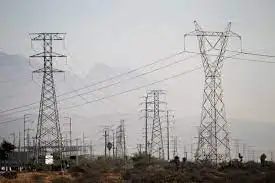Report call for major changes to operation of Nova Scotia's power grid

CSA Z463 Electrical Maintenance -
Our customized live online or in‑person group training can be delivered to your staff at your location.

- Live Online
- 6 hours Instructor-led
- Group Training Available
Nova Scotia Energy Modernization Act proposes an independent system operator, focused energy regulation, coal phase-out by 2030, renewable integration, transmission upgrades, and competitive market access to boost consumer trust and grid reliability across the province.
Key Points
Legislation to create an independent system operator and energy regulator, enabling coal phase-out and renewable integration.
✅ Transfers grid control from Nova Scotia Power to an ISO
✅ Establishes a focused energy regulator for multi-sector oversight
✅ Accelerates coal retirement, renewables build-out, and grid upgrades
Nova Scotia is poised for a significant overhaul in how its electricity grid operates, with the electricity market headed for a reshuffle as the province vows changes, following a government announcement that will strip the current electric utility of its grid access control. This move is part of a broader initiative to help the province achieve its ambitious energy objectives, including the cessation of coal usage by 2030.
The announcement came from Tory Rushton, the Minister of Natural Resources, who highlighted the recommendations from the Clean Electricity Task Force's report to make the electricity system more accountable to Nova Scotians according to the authors. The report suggests the creation of two distinct entities: an autonomous system operator for energy system planning and an independent body for energy regulation.
Minister Rushton expressed the government's agreement with these recommendations, while the premier had earlier urged regulators to reject a 14% rate hike to protect customers, stating plans to introduce a new Energy Modernization Act in the next legislative session.
Under the proposed changes, Nova Scotia Power, a privately-owned entity, will retain its operational role but will relinquish control over the electricity grid. This responsibility will shift to an independent system operator, aiming to foster competitive practices essential for phasing out coal—currently a major source of the province’s electricity.
Additionally, the existing Utility and Review Board, which recently approved a 14% rate increase despite political opposition, will undergo rebranding to become the Nova Scotia Regulatory and Appeals Board, reflecting a broader mandate beyond energy. Its electricity-related duties will be transferred to the newly proposed Nova Scotia Energy Board, which will oversee various energy sectors including electricity, natural gas, and retail gasoline.
The task force, led by Alison Scott, a former deputy energy minister, and John MacIsaac, an ex-executive of Nalcor Energy, was established by the province in April 2023 to determine the needs of the electrical system in meeting Nova Scotia's environmental goals.
Minister Rushton praised the report for providing a clear direction towards achieving the province's 2030 environmental targets and beyond. He estimated that establishing the recommended bodies would take 18 months to two years, and noted the government cannot order the utility to cut rates under current law, promising job security for current employees of Nova Scotia Power and the Utility and Review Board throughout the transition.
The report advocates for the new system operator to improve consumer trust by distancing electricity system decisions from Nova Scotia Power's corporate interests. It also critiques the current breadth of the Utility and Review Board's mandate as overly extensive for addressing the energy transition's long-term requirements.
Nova Scotia Power's president, Peter Gregg, welcomed the recommendations, emphasizing their role in the province's shift towards renewable energy, as neighboring jurisdictions like P.E.I. explore community generation to build resilience, he highlighted the importance of a focused energy regulator and a dedicated system operator in advancing essential projects for reliable customer service.
The task force's 12 recommendations also include the requirement for Nova Scotia Power to submit an annual asset management plan for regulatory approval and to produce reports on vegetation and wood pole management. It suggests the government assess Ontario's hydro policies for potential adaptation in Nova Scotia and calls for upgrades to the transmission grid infrastructure, with projected costs detailed by Stantec.
Alison Scott remarked on the comparative expense of coal power against renewable sources like wind, suggesting that investments in the grid to support renewables would be economically beneficial in the long run.











